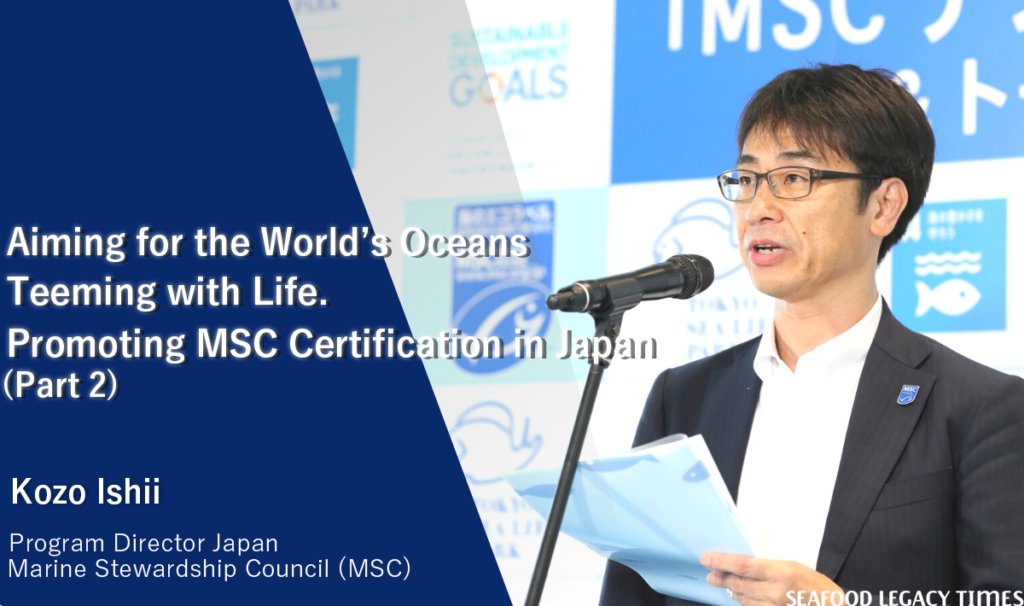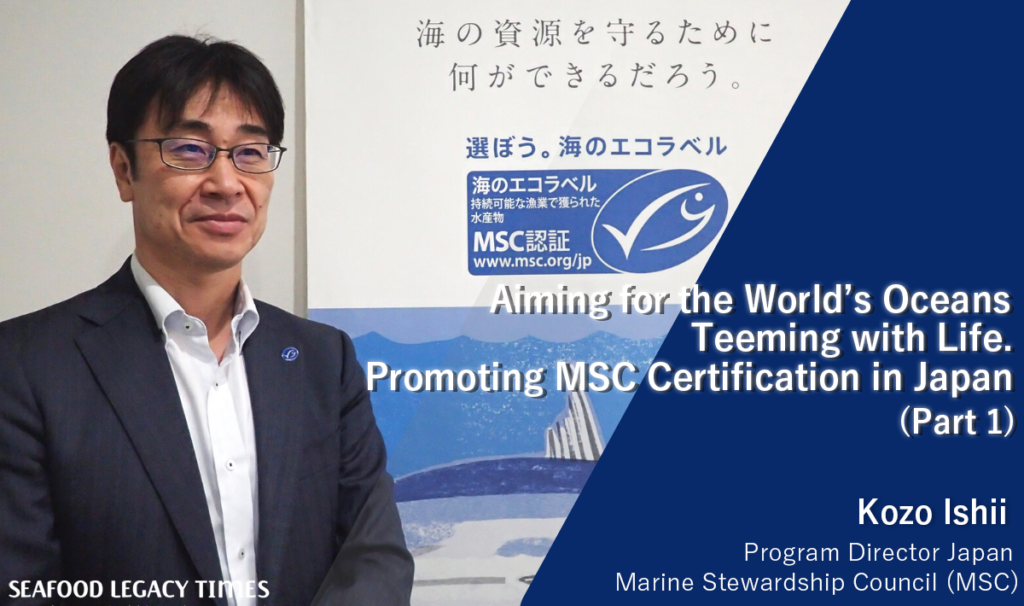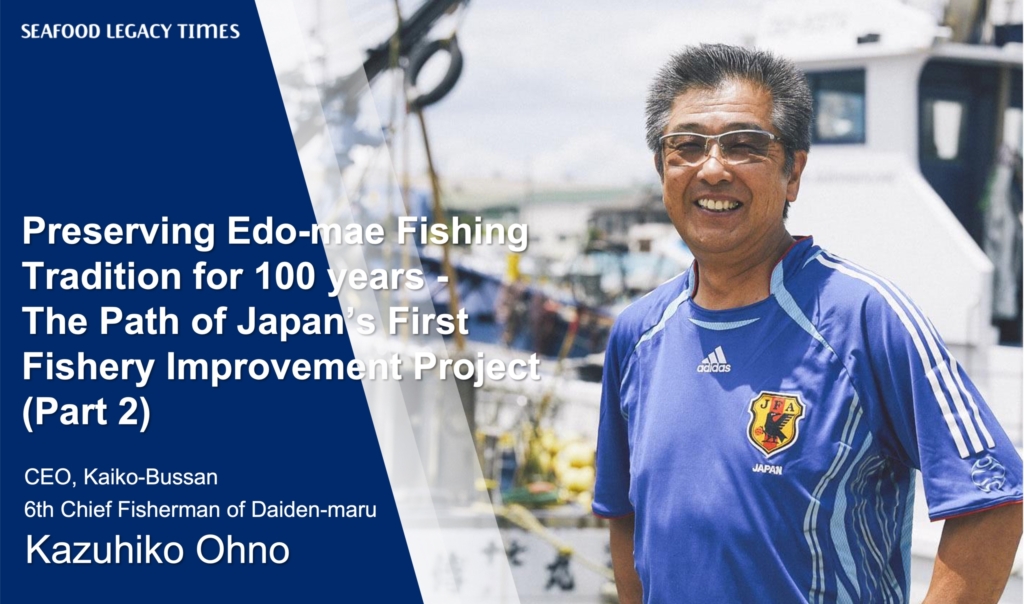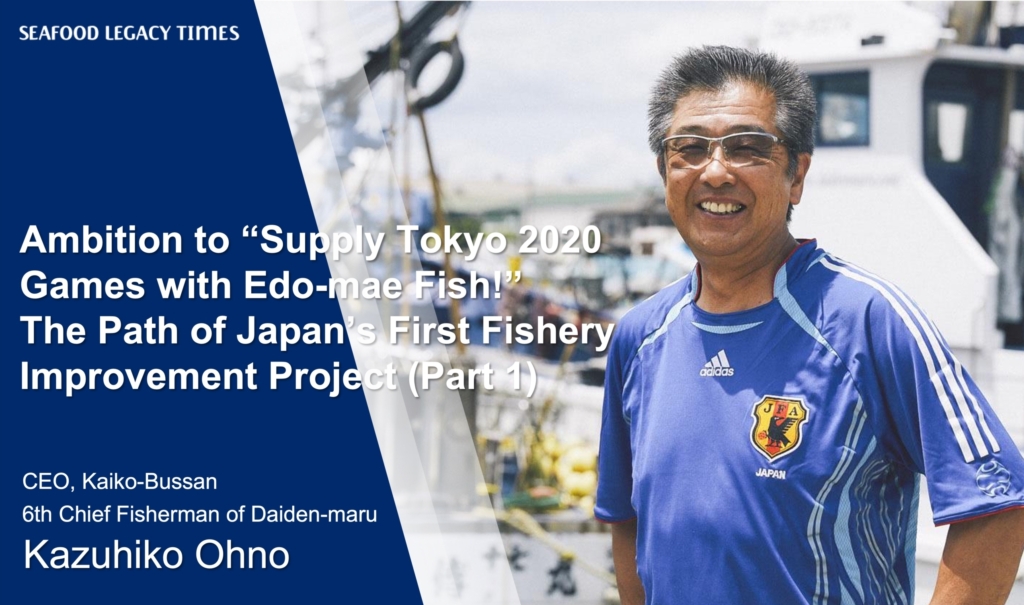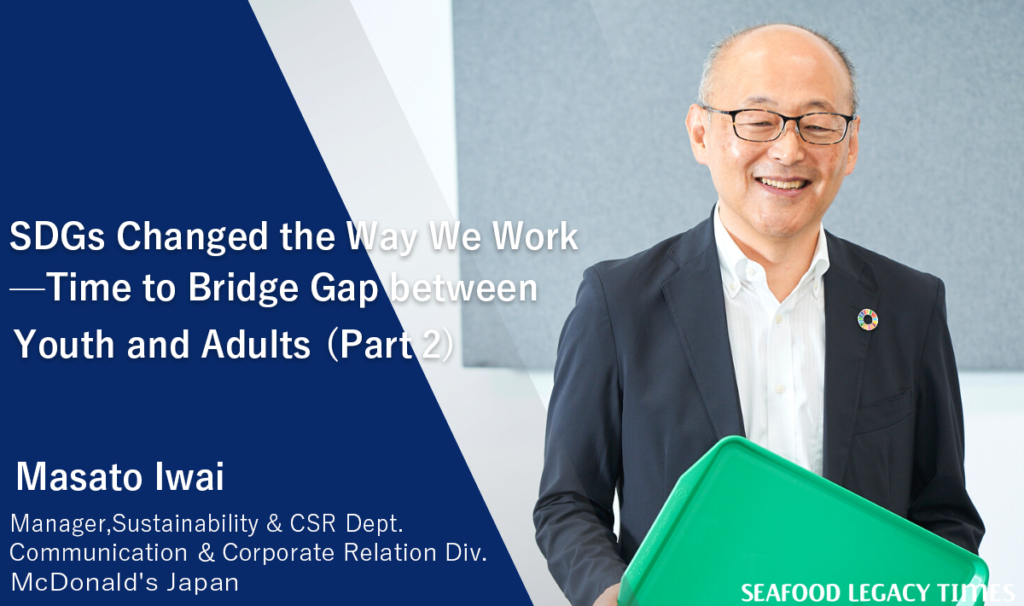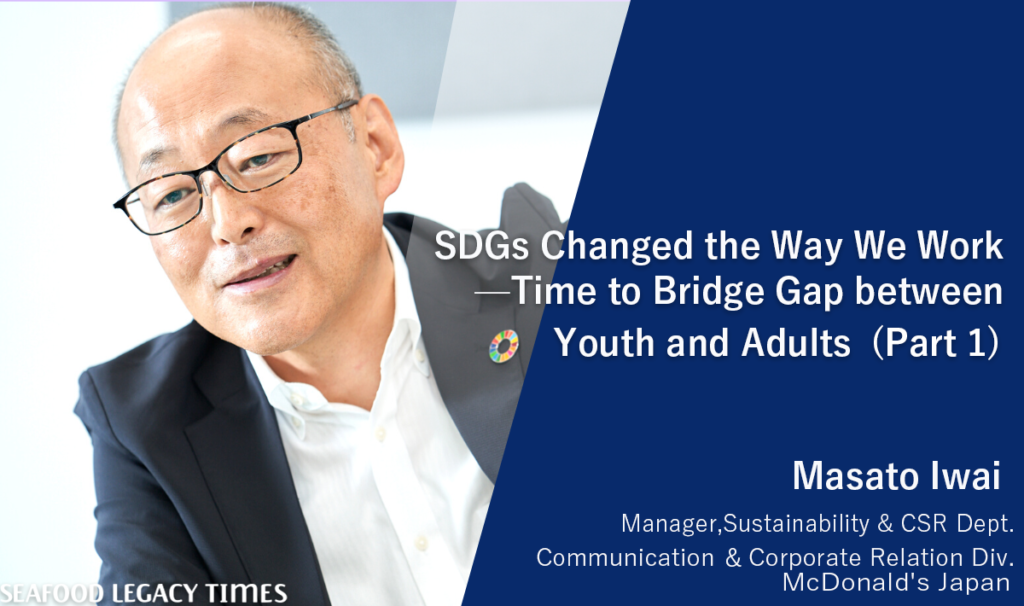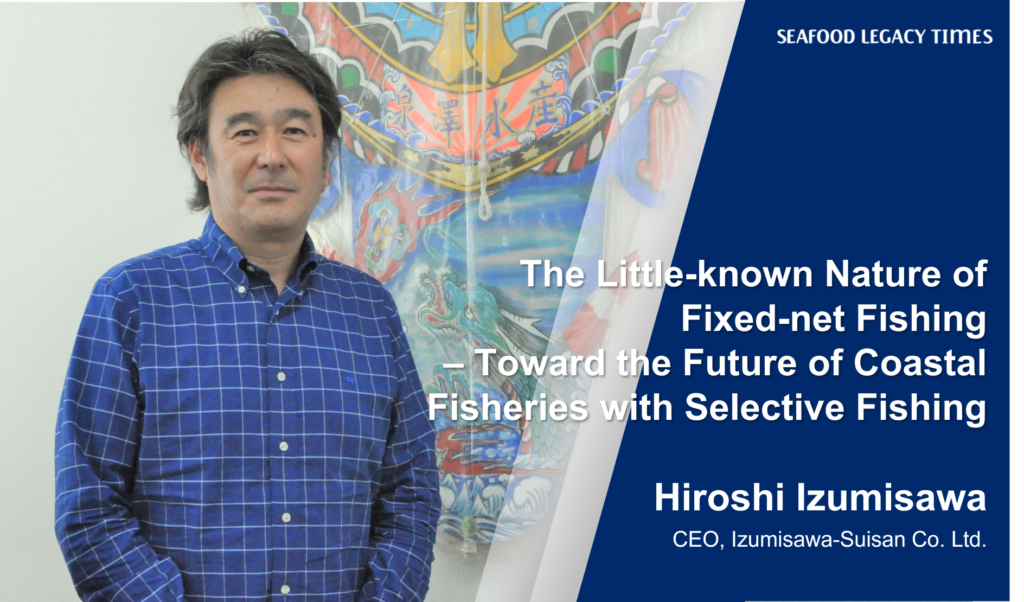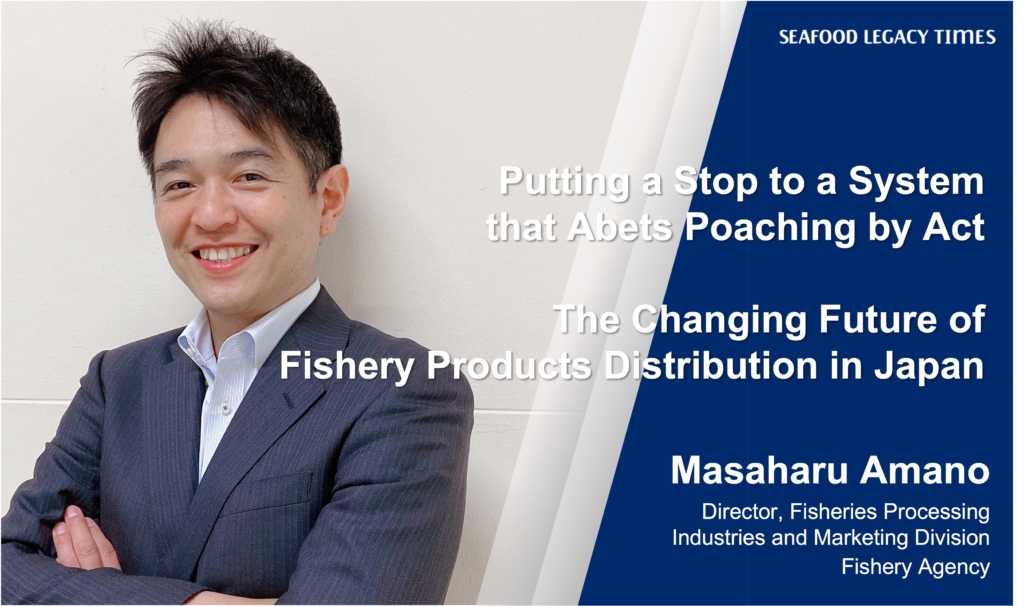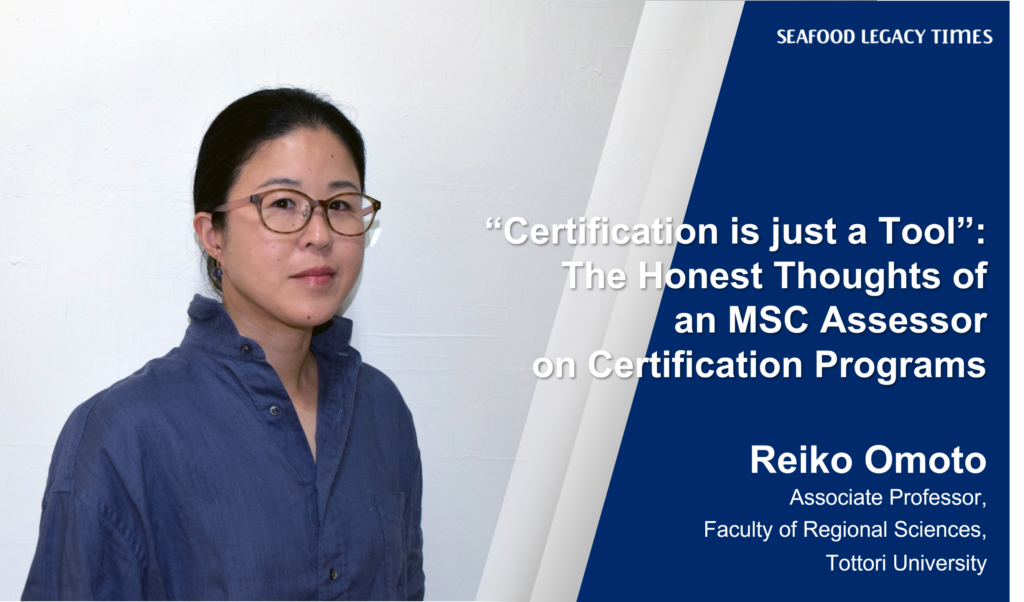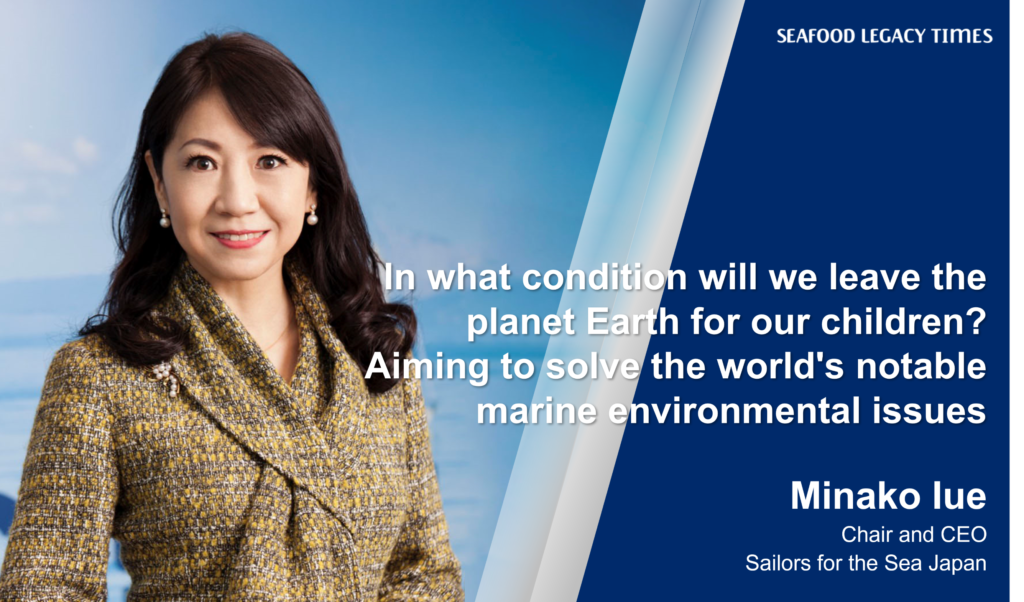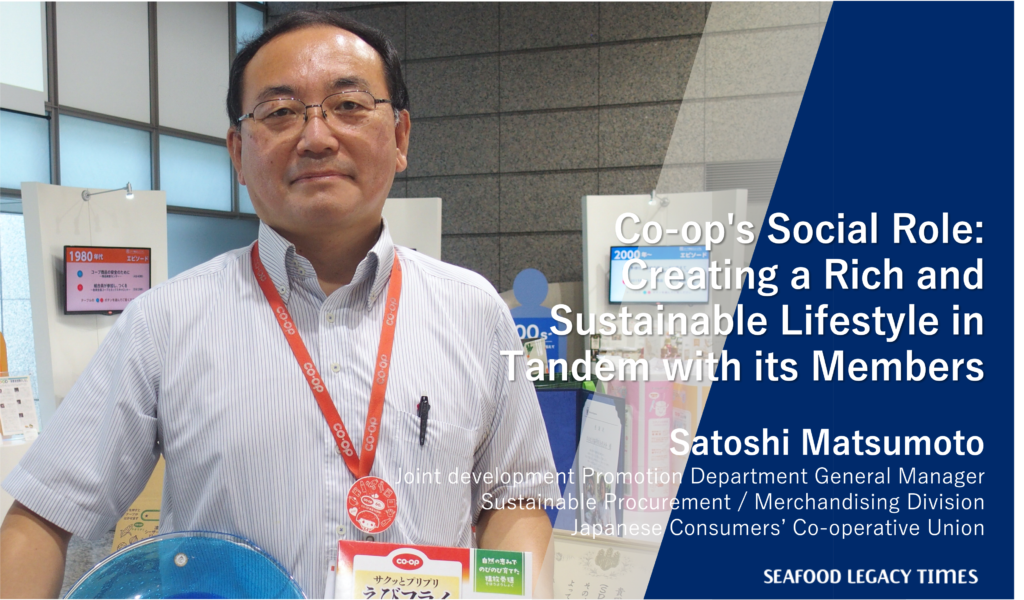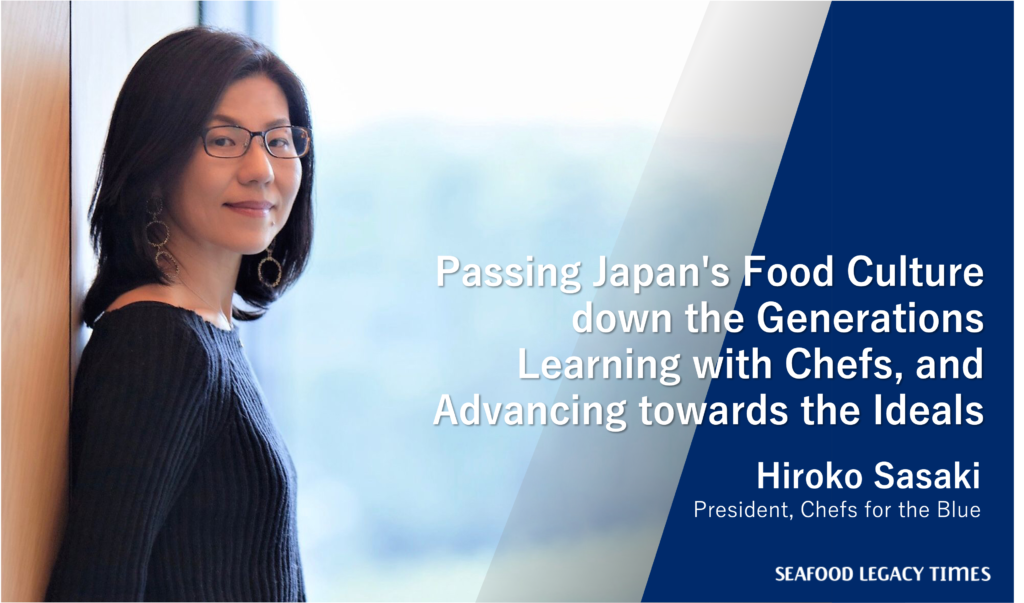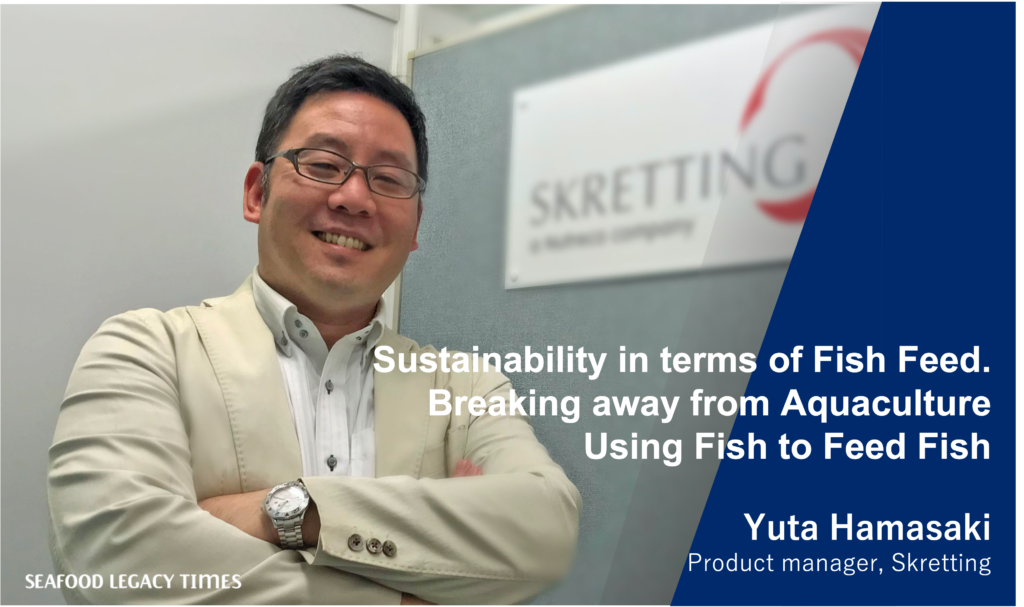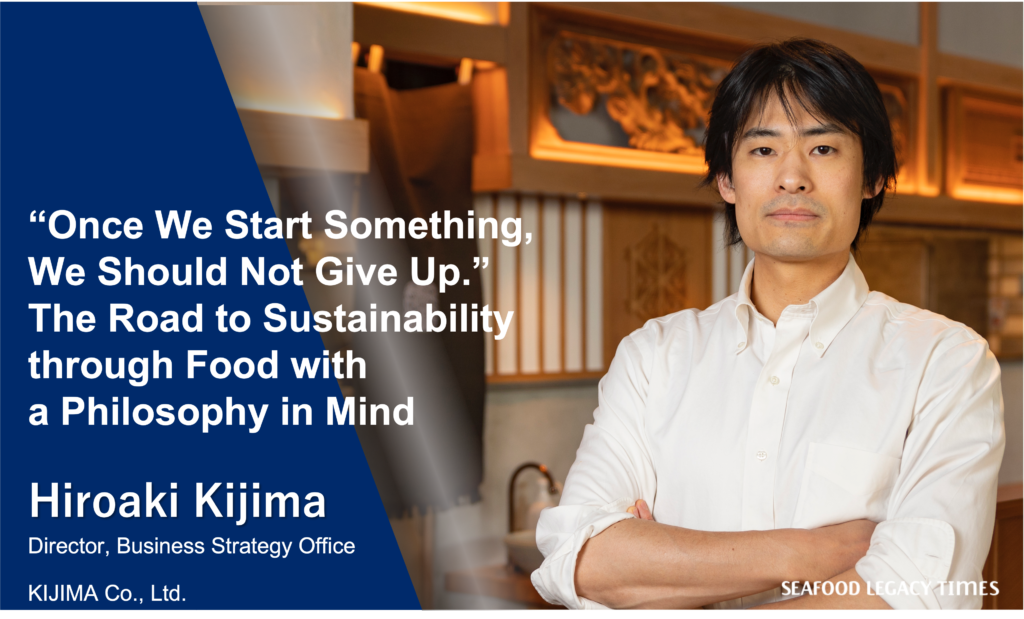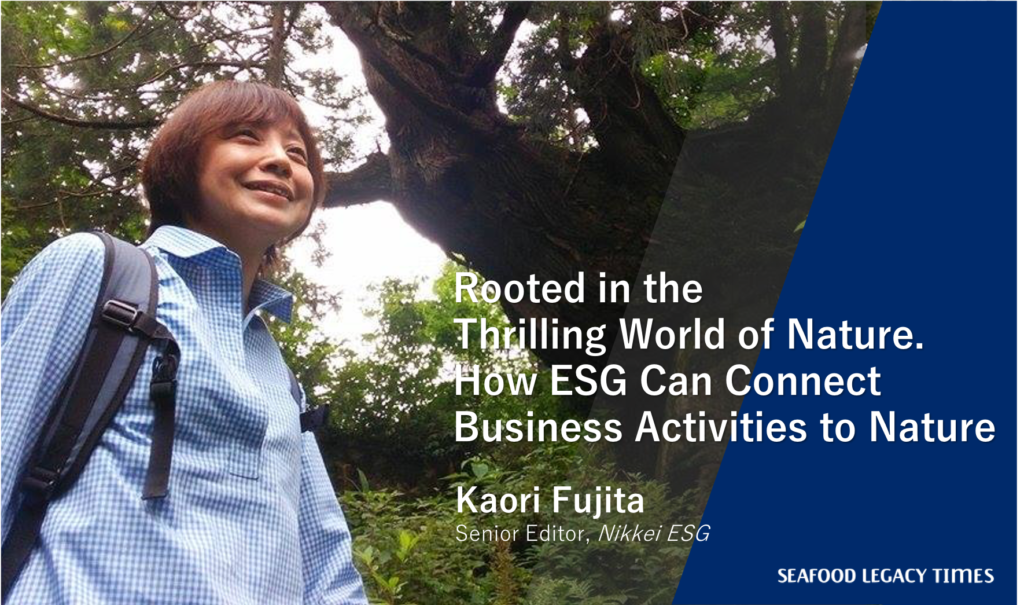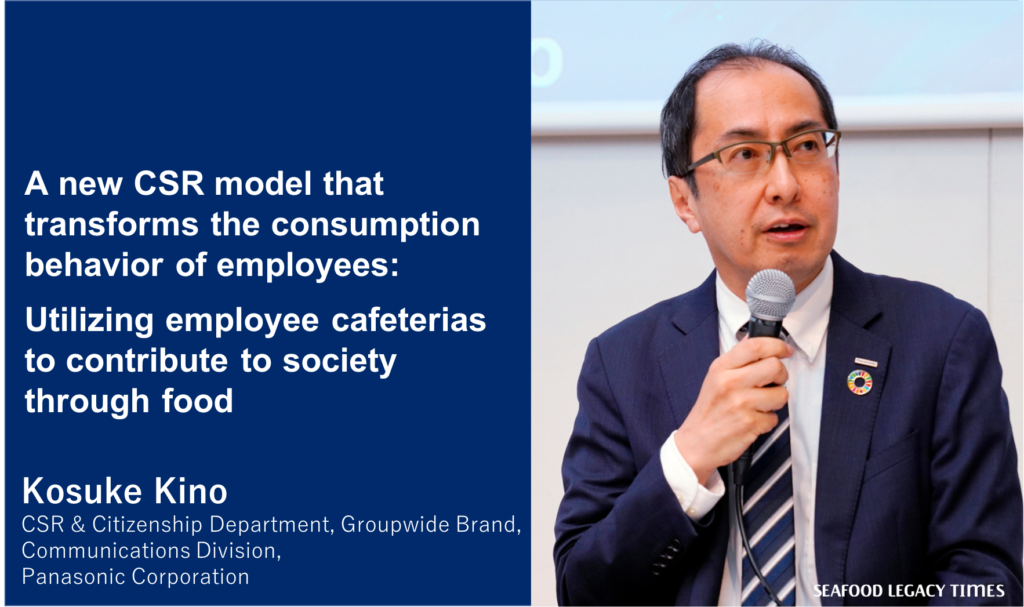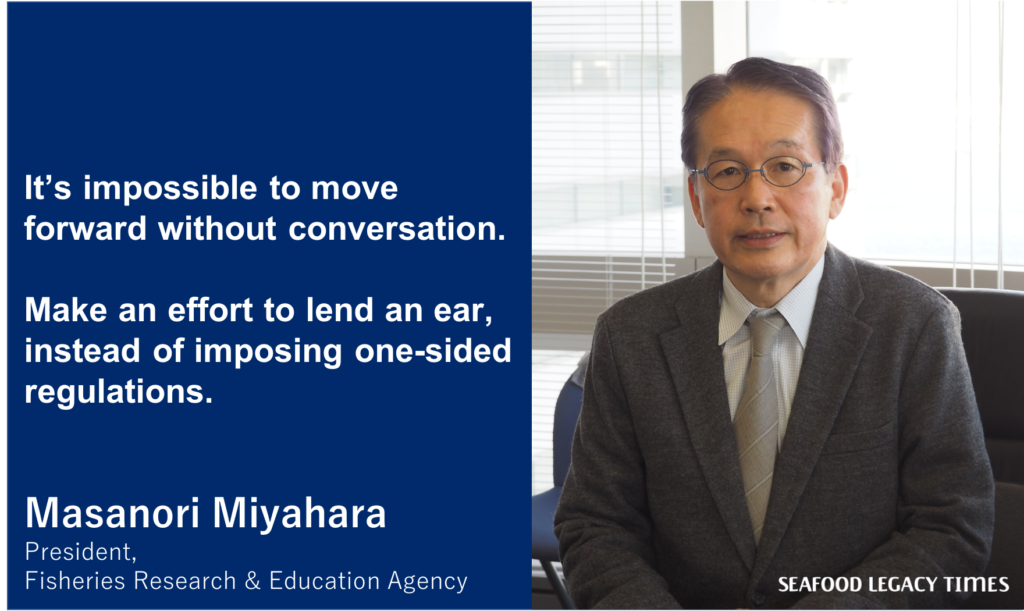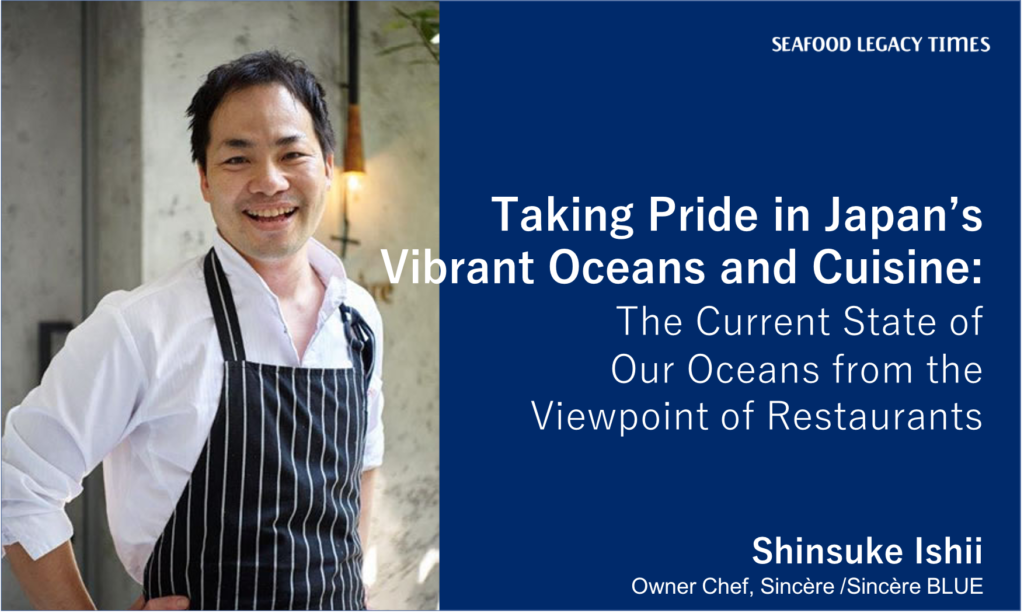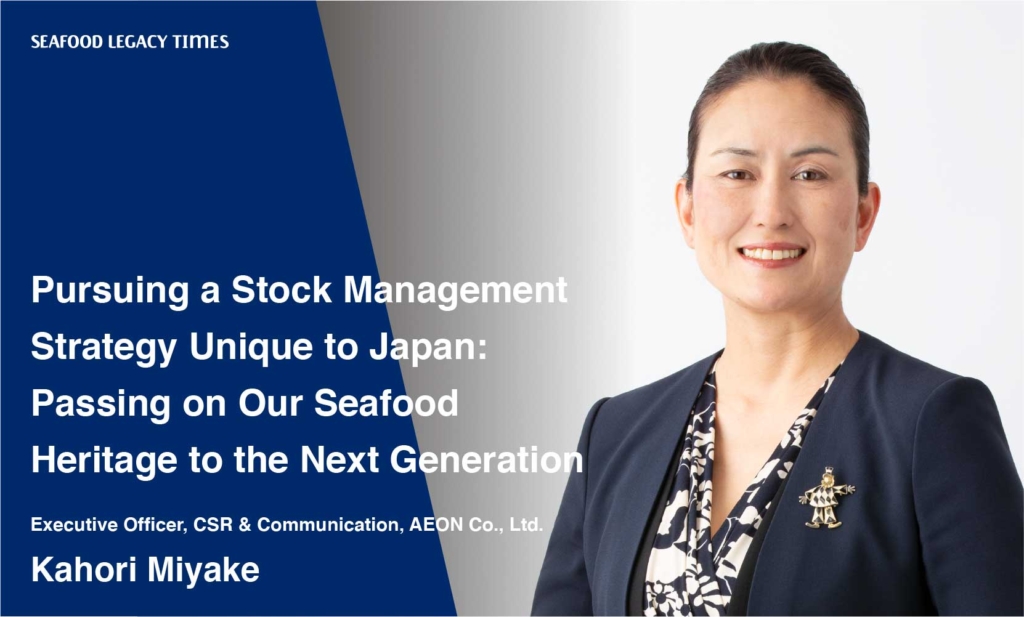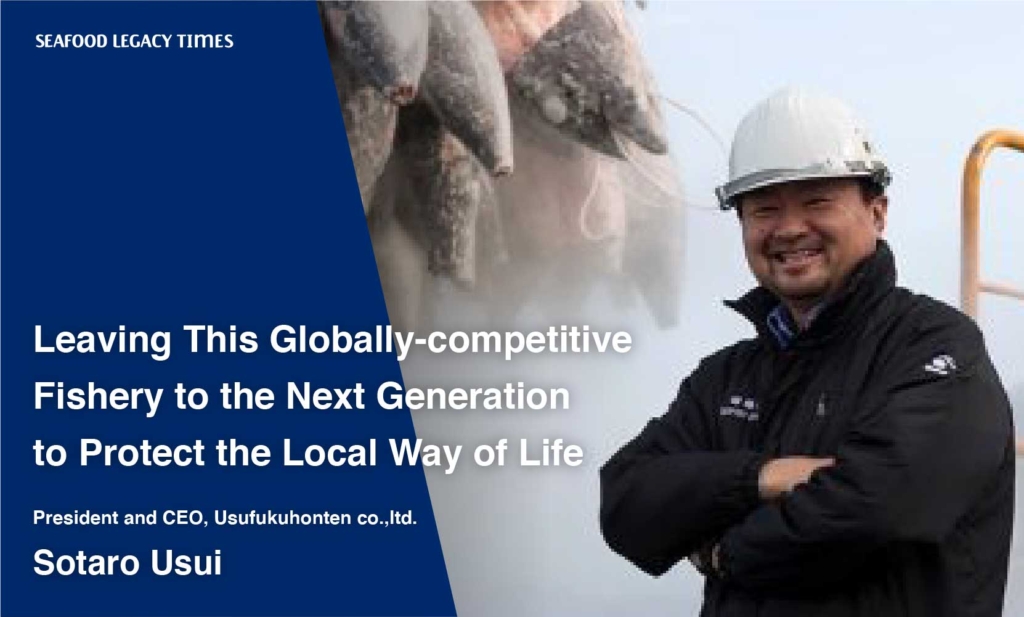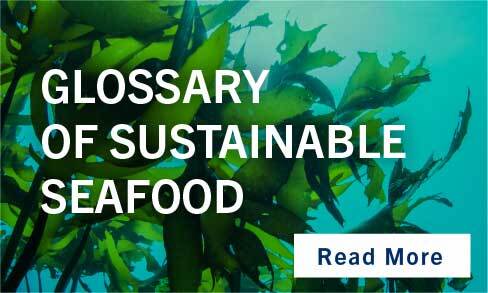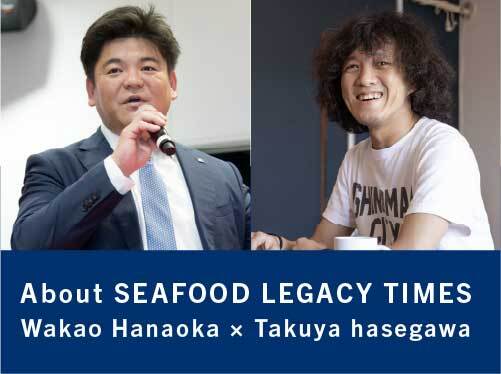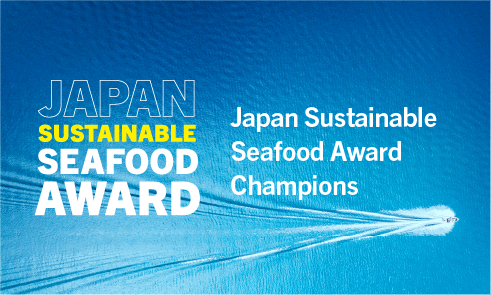
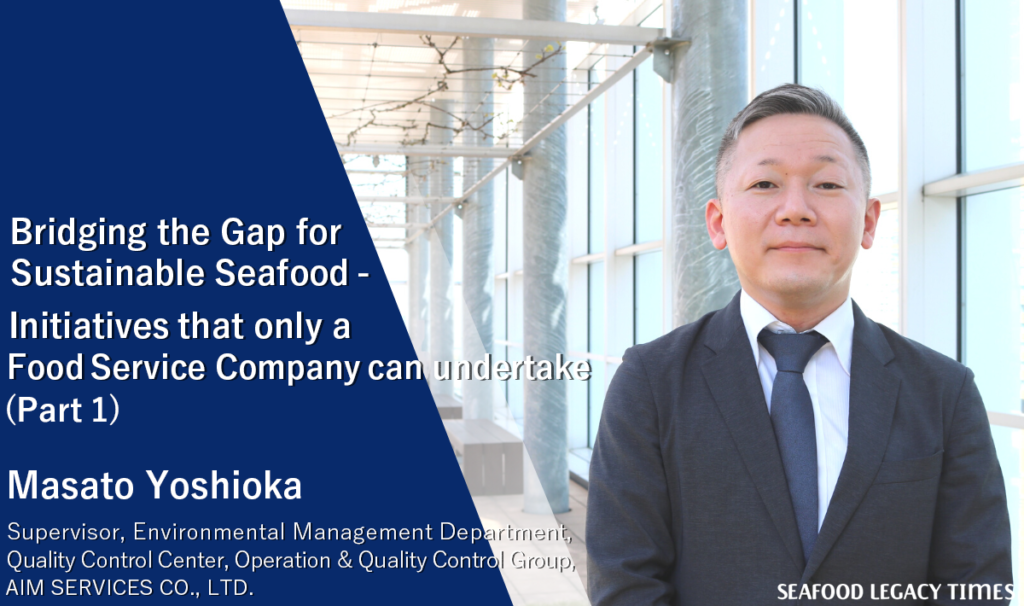
Masato Yoshioka, Supervisor, Environmental Management Department, Quality Control Center, Operation & Quality Control Group, AIM SERVICES CO., LTD.
The food service company AIM SERVICES designs and provides ingredients for the menu using sustainable seafood* that is served once a month at Panasonic’s employee cafeteria. In order to handle MSC and ASC-certified seafood in cooperation with Panasonic’s efforts, in 2018 they became the first food service company in Japan to obtain CoC certification.
An industry leader in consignment operation of company and other cafeterias, AIM SERVICES has a long track record of providing food and beverage at sports facilities and international sports events.
How does a food service company work to promote sustainable seafood in cafeterias? We spoke with Masato Yoshioka, who promotes and supports the SDGs internally and externally as the CoC and other certifications secretariat at AIM SERVICES.
*Panasonic won the Initiative Award at the 1st Japan Sustainable Seafood Awards in 2019.
Masato Yoshioka
Born in Kyoto in 1977. Majored in biochemistry. After working for a food trading company, he joined AIM SERVICES CO., LTD. He is involved in quality control and food ingredient purchasing, and promotes initiatives related to MSC, ASC, and CoC certification. In 2018, the company became the first food service company to obtain certification. Currently, he is a member of the Environmental Management Office, where he promotes and supports the SDGs both internally and externally as the certification secretariat.
— Mr. Yoshioka, you were in charge of obtaining CoC certification in 2018, the first for a food service company in Japan, right?
Yes, I was. It was around the time I moved to the purchasing department.
サスシーサンプルコーナー-1024x683.jpg)
— The first step was the introduction of sustainable seafood in employee cafeterias (hereinafter referred to as “cafeterias”) at Panasonic. When you were approached by Panasonic to obtain CoC certification*, how did you respond?
I used to work in quality control, so I had no resistance to the idea of certification itself, but I remember that I had a hard time understanding the requirements of the standard and had to contact the MSC Japan office (now MSC Japan) on a daily basis.
— To begin with, how were the efforts inside your company to procure sustainable seafood?
Our company had also been aware of the existence of sustainable seafood for some time, but we were not able to make proposals to our clients because we were a trustee At that time, Mr. Kosuke Kino, who was in charge of corporate citizenship activities at Panasonic, approached us and gave us a good opportunity, and we decided to give it our best shot.
After that, Mr. Kino on various occasions powerfully communicated the scheme that “raising awareness of sustainable seafood among employees, who are also consumers, and changing their consumption behavior, that means making them choose sustainable seafood both inside and outside the company, will contribute to the SDGs,” which got a great response, and we received inquiries from dozens of companies.
— Has the sustainable seafood menu in cafeterias that started with the Panasonic initiative continued even during COVID-19?
With the exception of locations where the cafeterias themselves are not in operation, we have continued to provide it on a regular basis, although the number of meals may vary depending on the status of the epidemic. It is offered once a month as an event. There are also several locations in Panasonic that serve it as a regular menu item twice a week.
メニュー.jpg)
— Are you able to convince your clients that they need to obtain CoC certification in order to handle MSC/ASC-certified products?
Everyone agrees with the significance of promoting SDGs internally, communicating them to society, and ultimately changing awareness and behavior within the space of the company cafeteria, but as the certification costs and ecolabel royalties are inevitable, some would ask, “Can’t we handle certified products without going that far?”
However, those ideas would make it impossible to sustain the activities of the MSC and ASC, which rely on ecolabel royalties to fund their operations. After all, if we are to agree with the activities m, we would like to take the stance of providing products with CoC certification, and that is where we are having the most difficulty in gaining the understanding of our clients.
In the end, the issue is that we have not fully communicated to end-users the real state of fishery resources and the reasons why they should choose sustainable seafood. In addition, the MSC and ASC, which are global seafood certifications, are not well known in Japan, and there are still many people who do not know what kind of activities the MSC and ASC do.
Those of us involved are aware that, if things continue as they are, the next generation will not be able to eat the fish they want. On the other hand, there are also people who think, “It doesn’t really mean that we won’t be able to eat it, right?”, so it’s really the question of what we can do for them in the company cafeteria. Until now, we have regularly promoted sustainable seafood as part of our menu in order to make people aware of it, but I think we need to change our approach a bit.
— How do you think we should communicate to end-users the real state of fishery resources and the significance of sustainable seafood?
I think we need to do something that will grab the attention of those who are not interested. What Mr. Kino of Panasonic taught me is that, unless you do something that other companies will want to imitate, it will be difficult to create a big movement, and people don’t understand its significance and purpose.
In addition to the certification costs and the ecolabel royalties, the issues concerning variety and cost of ingredients cannot be resolved without increasing the volume of distribution. If you think about it in terms of business to increase sales of your products and services, you can do things like having influencers appeal to users, but a campaign to increase the distribution of sustainable seafood is not something that a single company can do.
Though MSC Japan holds Sustainable Seafood Week every year for consumers, I feel that it does not reach end-users well enough. Just as I was thinking how I would appreciate it if they could communicate more with end-users, I received a questionnaire from the MSC about CoC certification this year for the first time.
I told them it was my sincere opinion that “they need to communicate this information to end-users so that they will get interested in the issue at first .” I have been communicating with MSC Japan and ASC Japan on a daily basis with the hope that we can work together to make the efforts at company cafeterias lead to a larger movement.
There was a memorable moment at the Tokyo Sustainable Seafood Symposium 2019. Neuroscientist Kenichiro Mogi took the podium and said, “There is no point in talking about fishery resources in a place such as this with only highly literate people and producers.” The crowd was abuzz, but I agreed with his point. It may be true that if only those who have a sense of crisis get together it may not lead to a big movement.
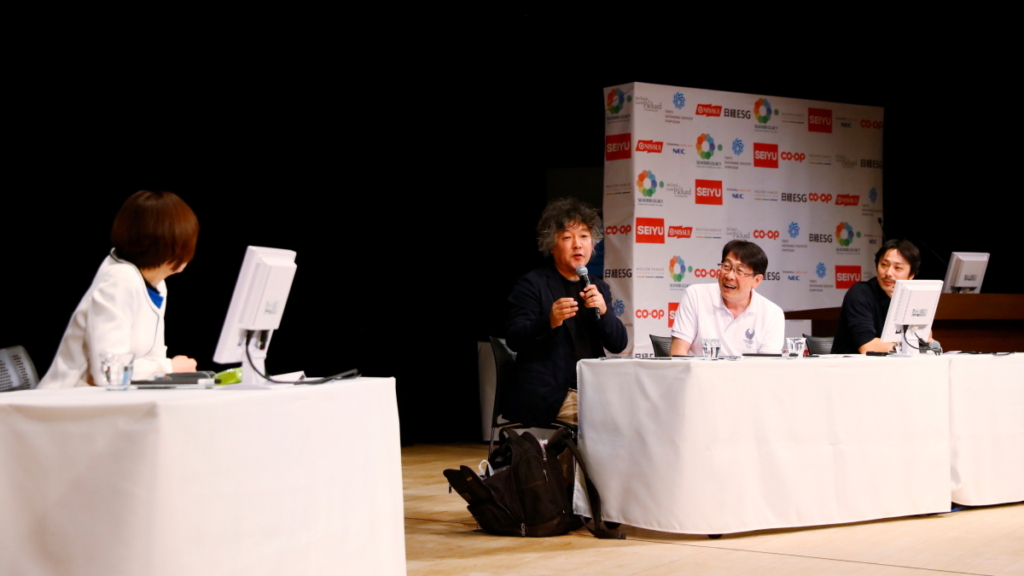




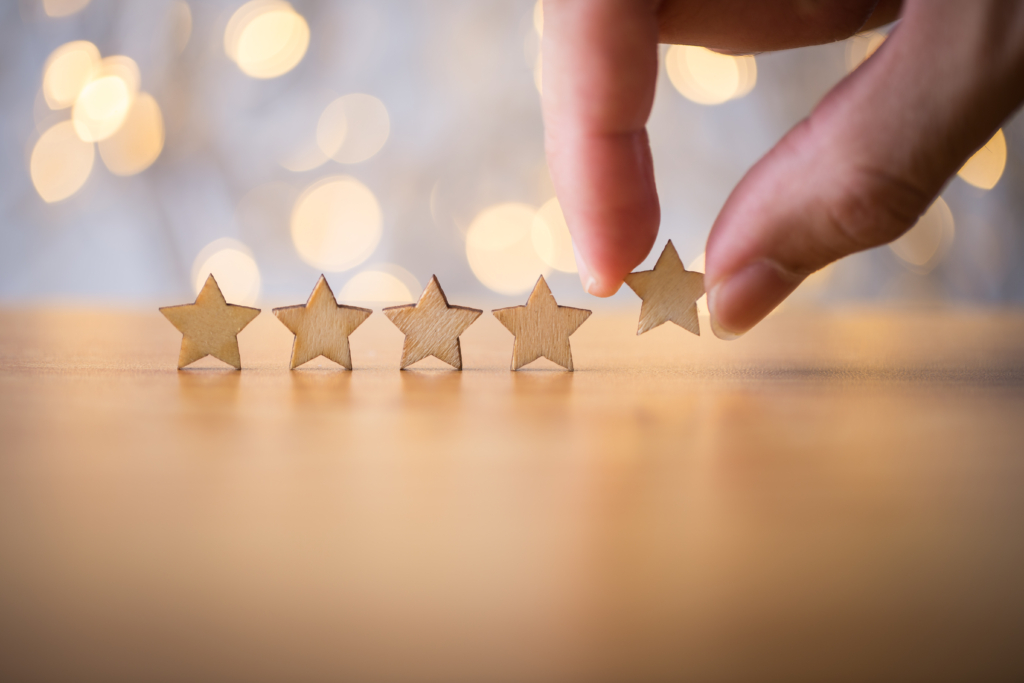




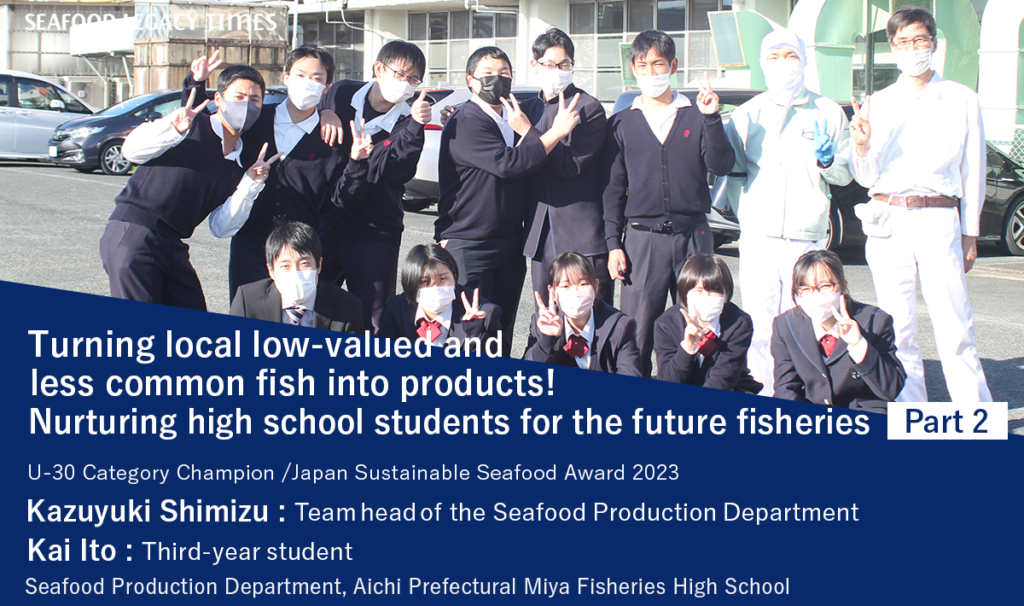
-1024x606.png)


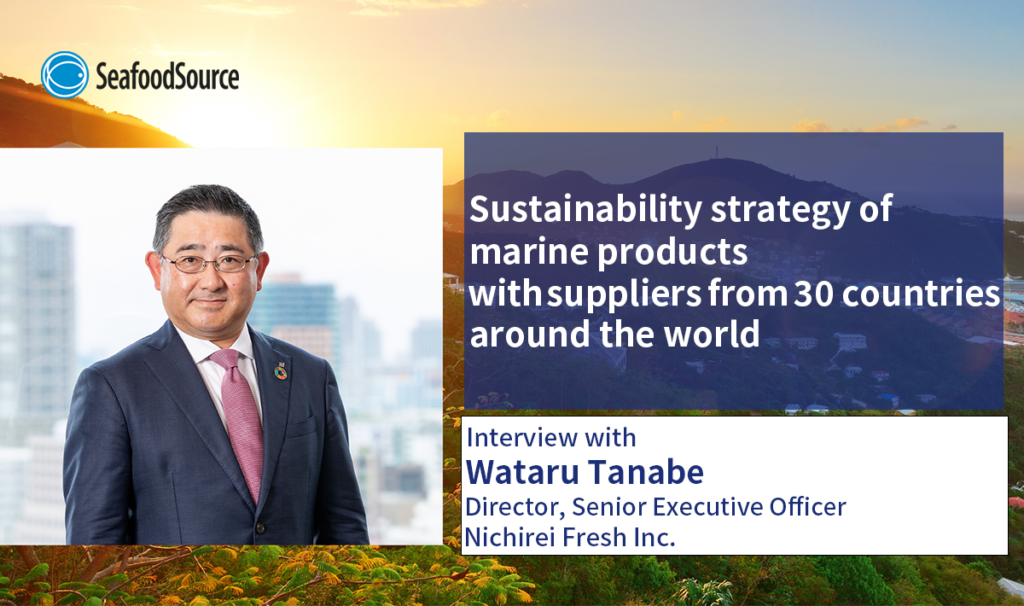
_-1024x606.png)

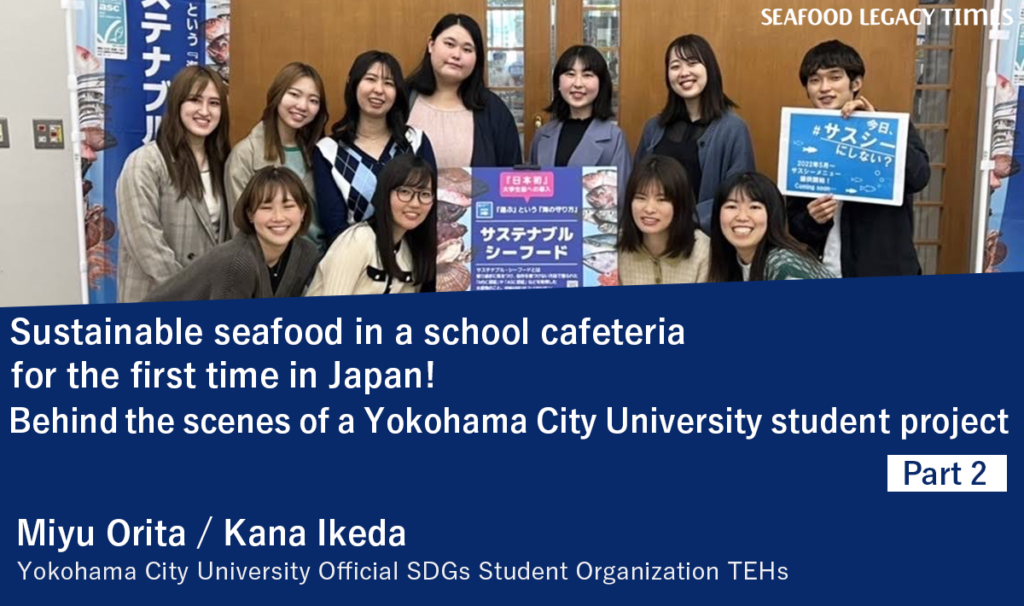
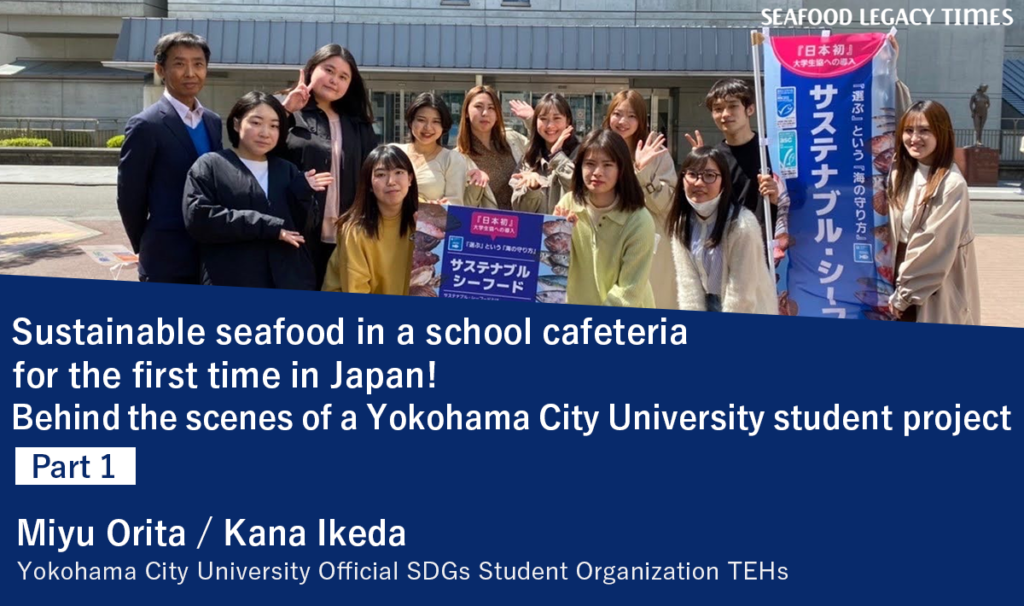
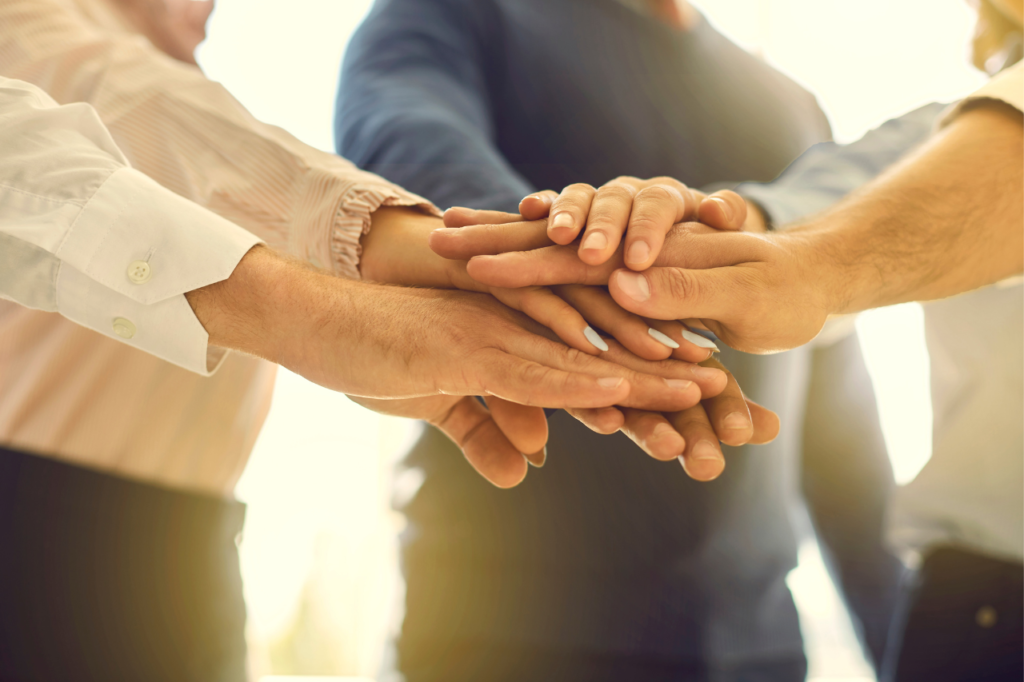


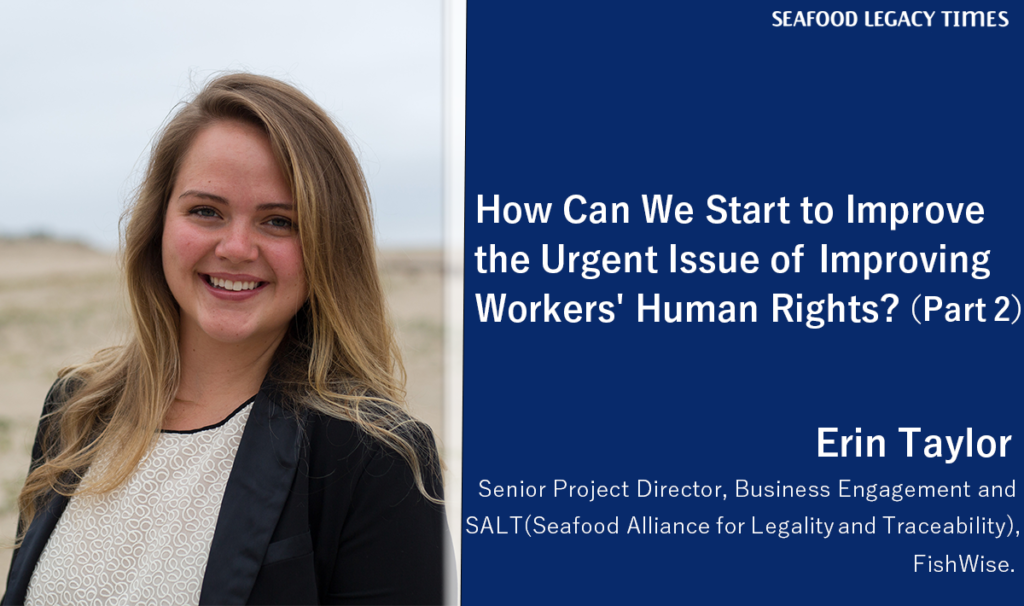
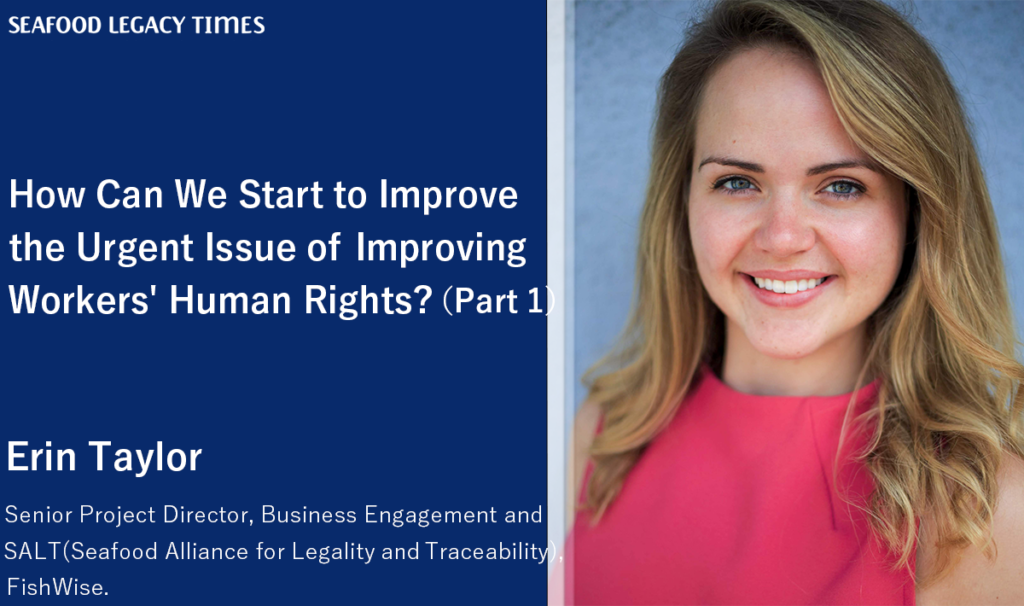
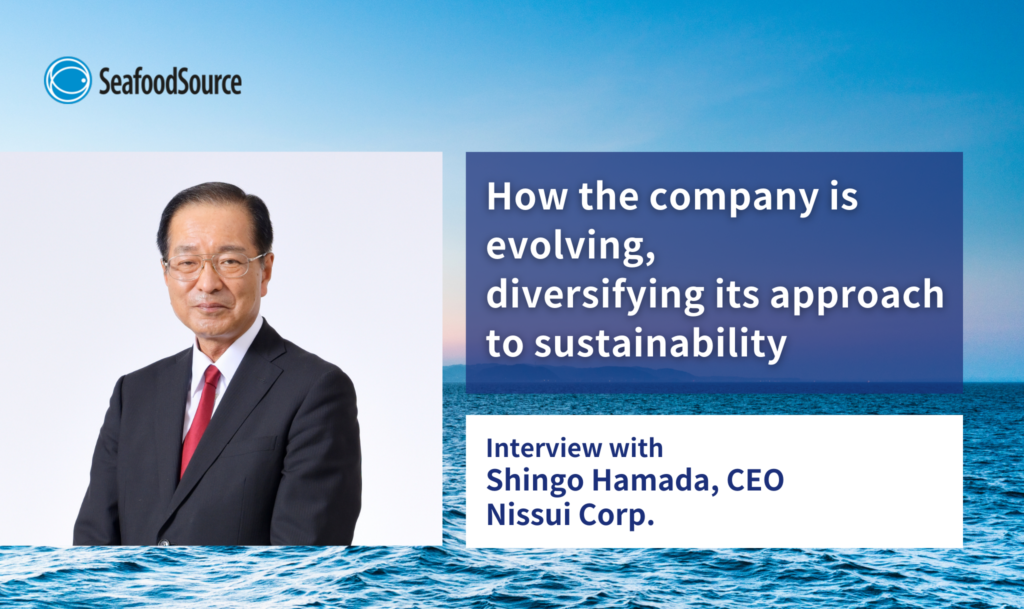




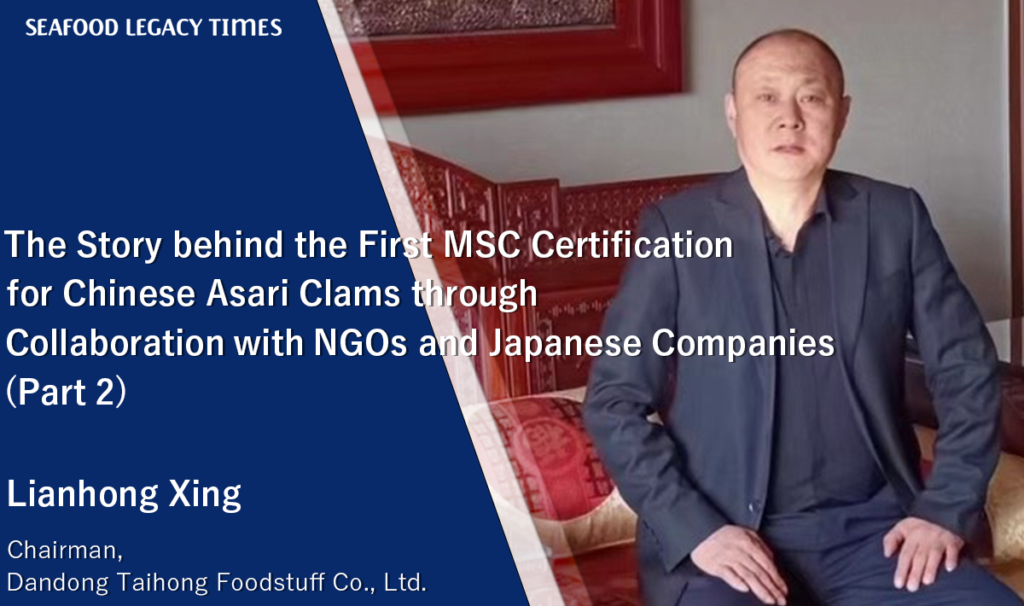
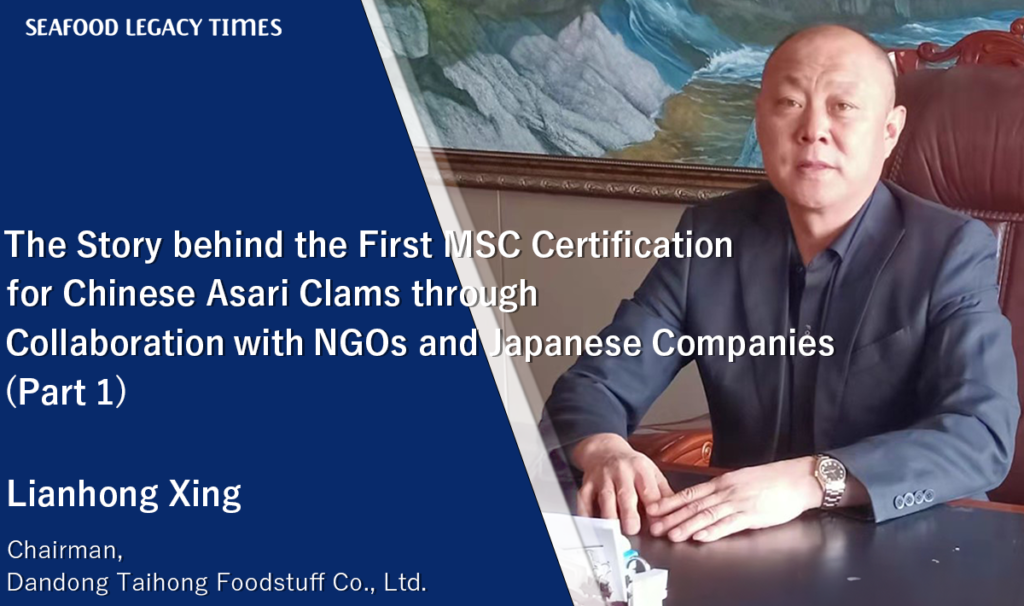

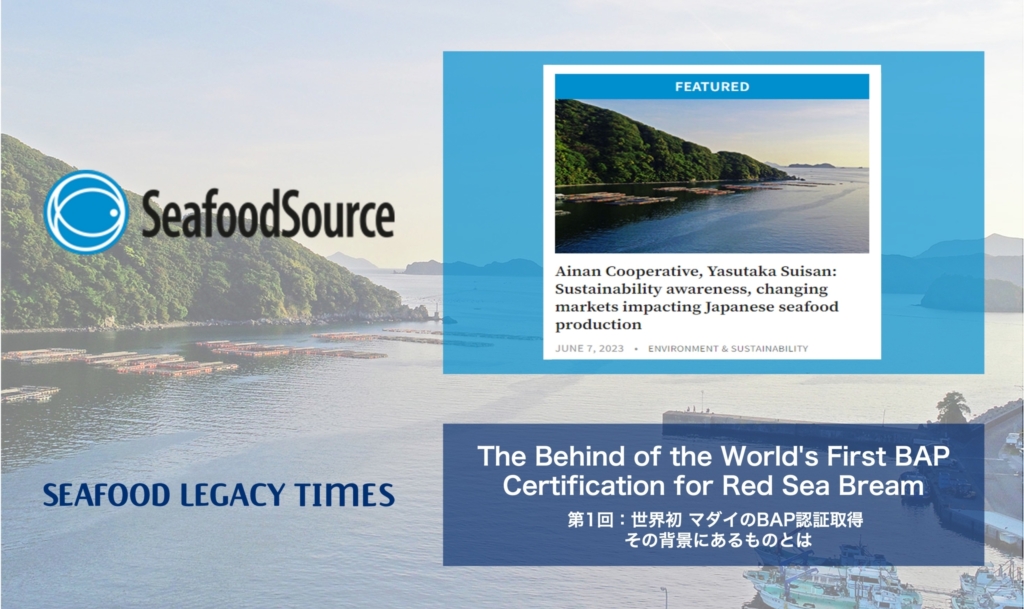

1_修正524-1024x606.png)


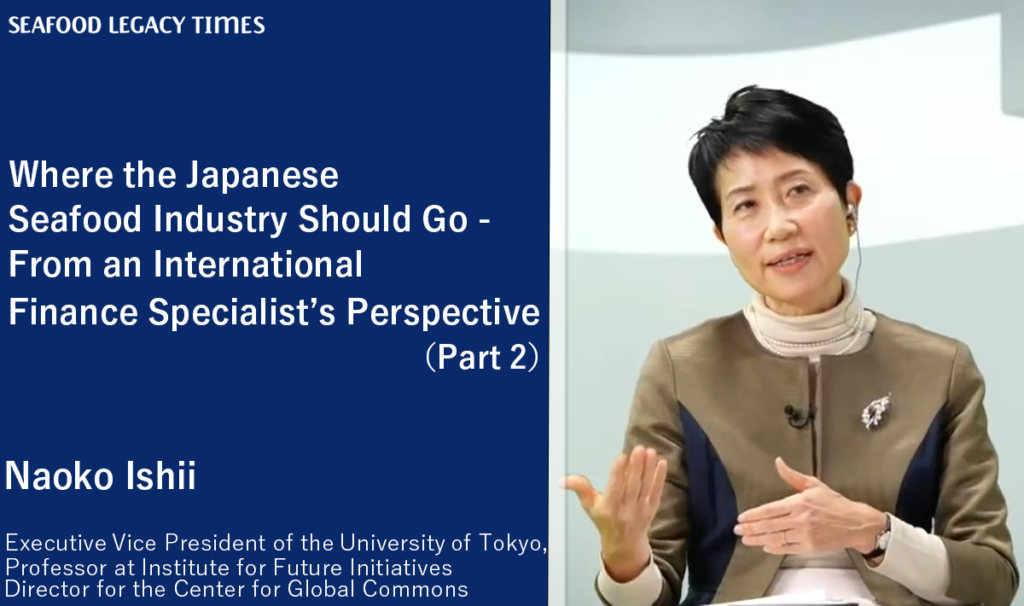







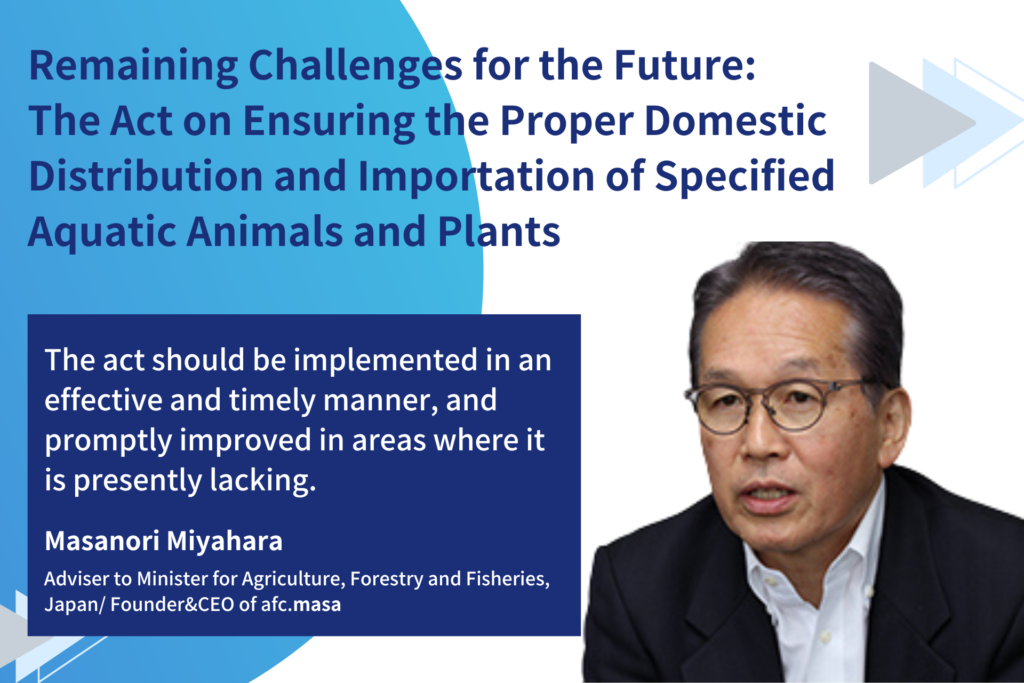
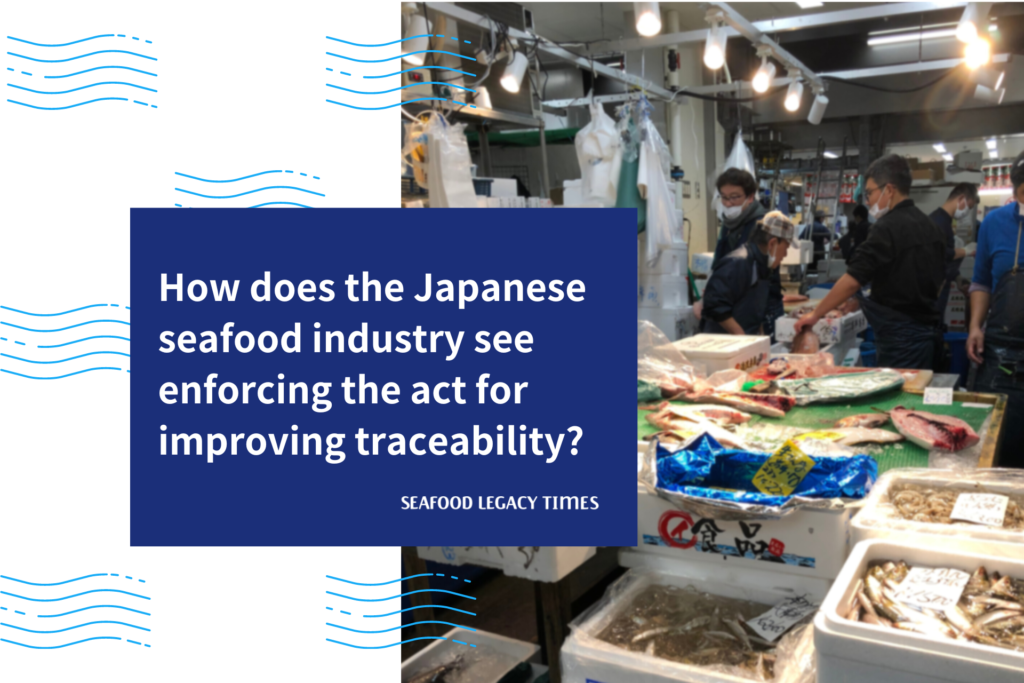



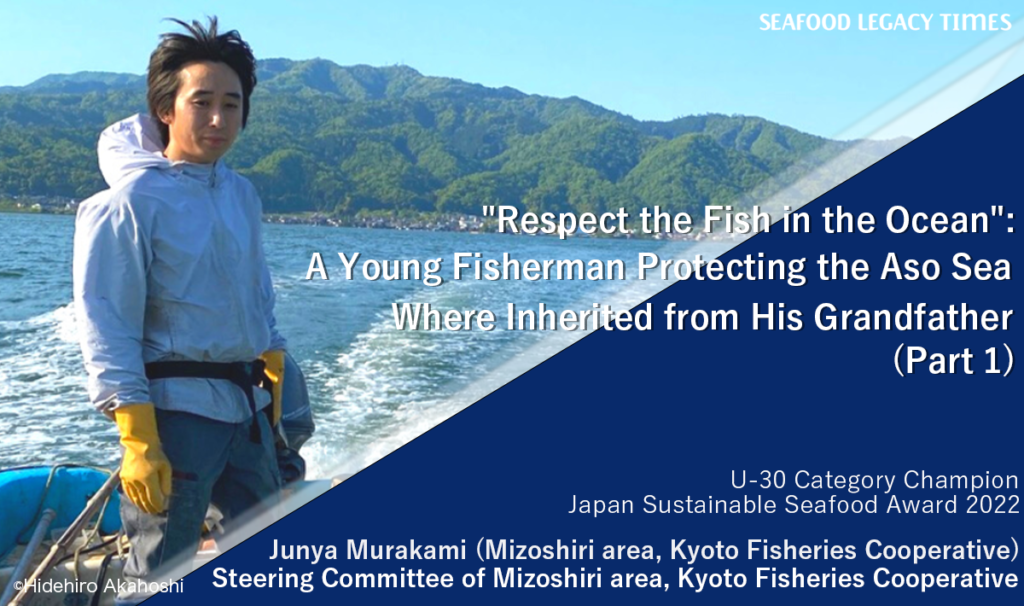
.2-1024x606.png)
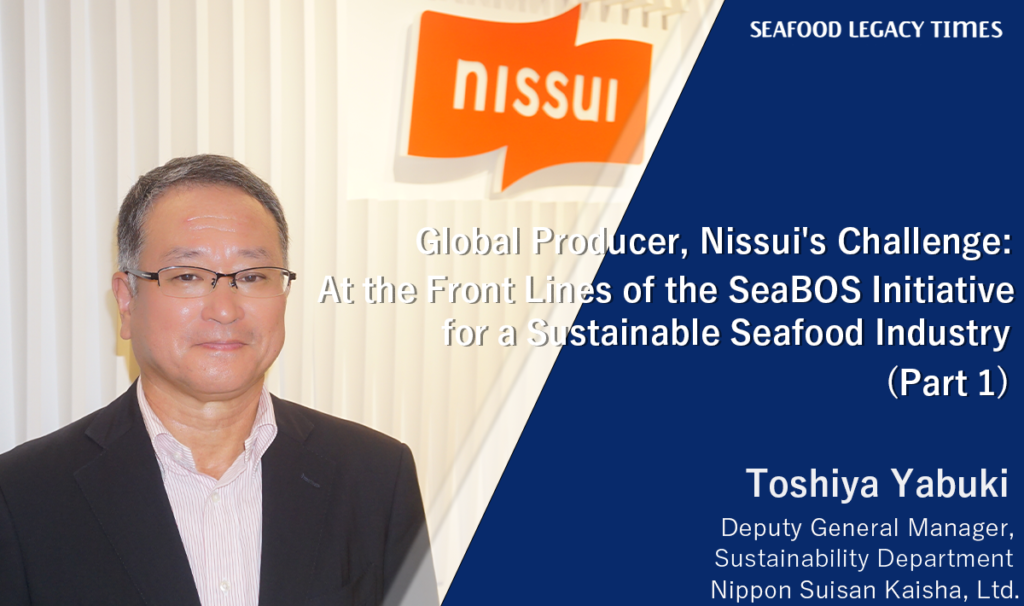
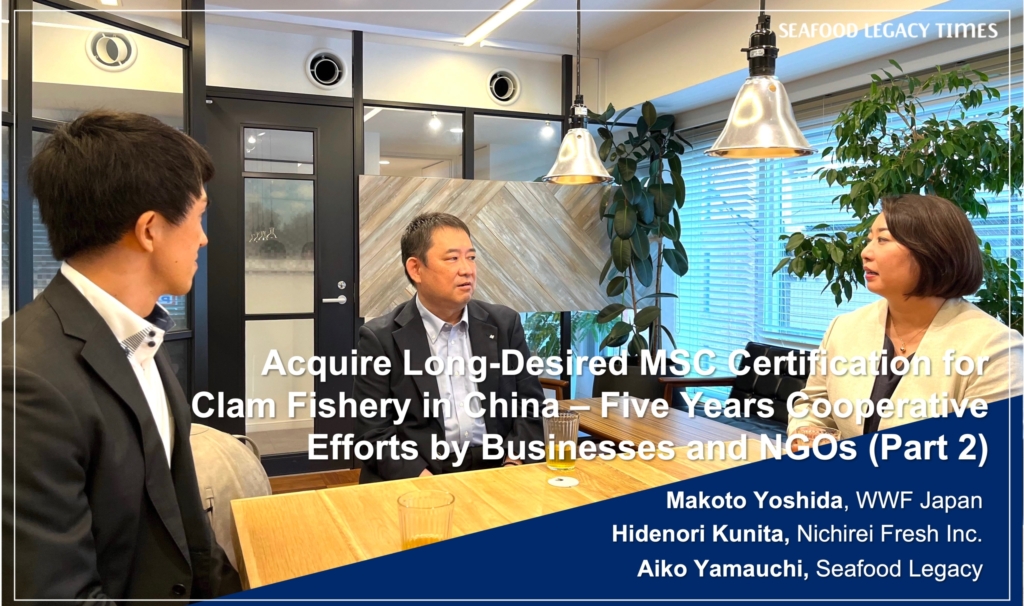
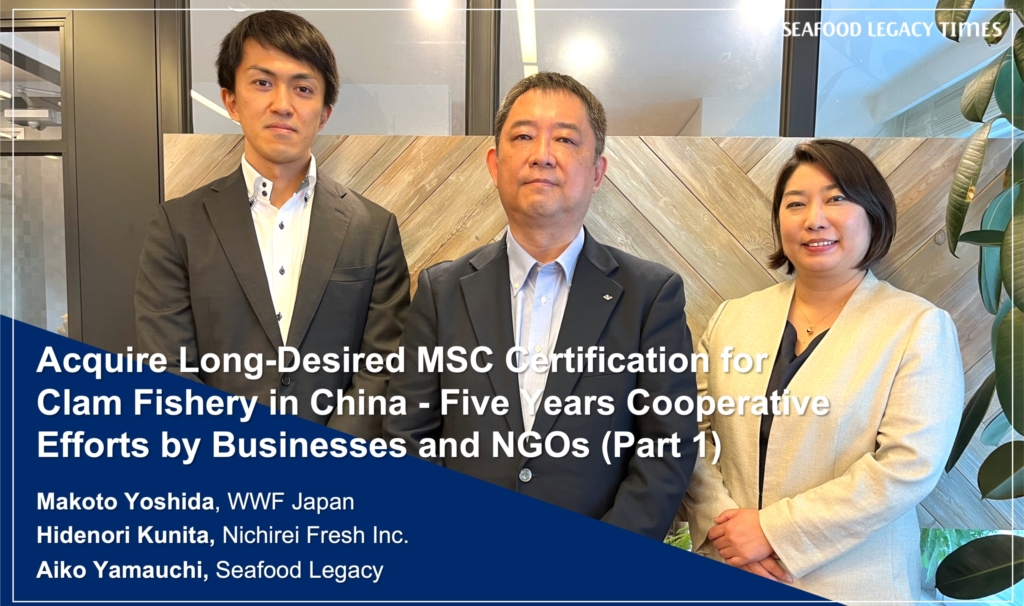






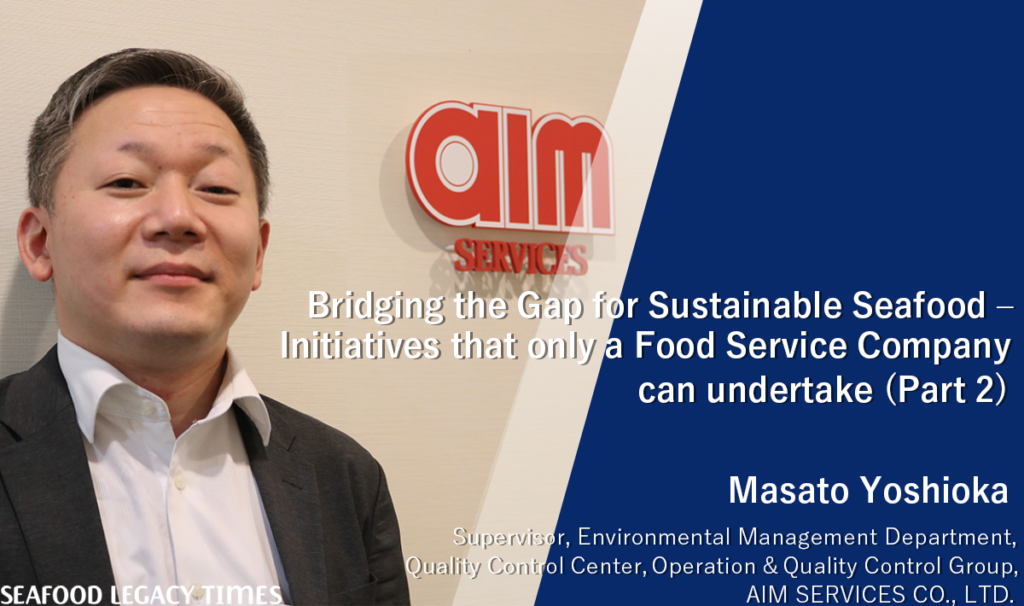

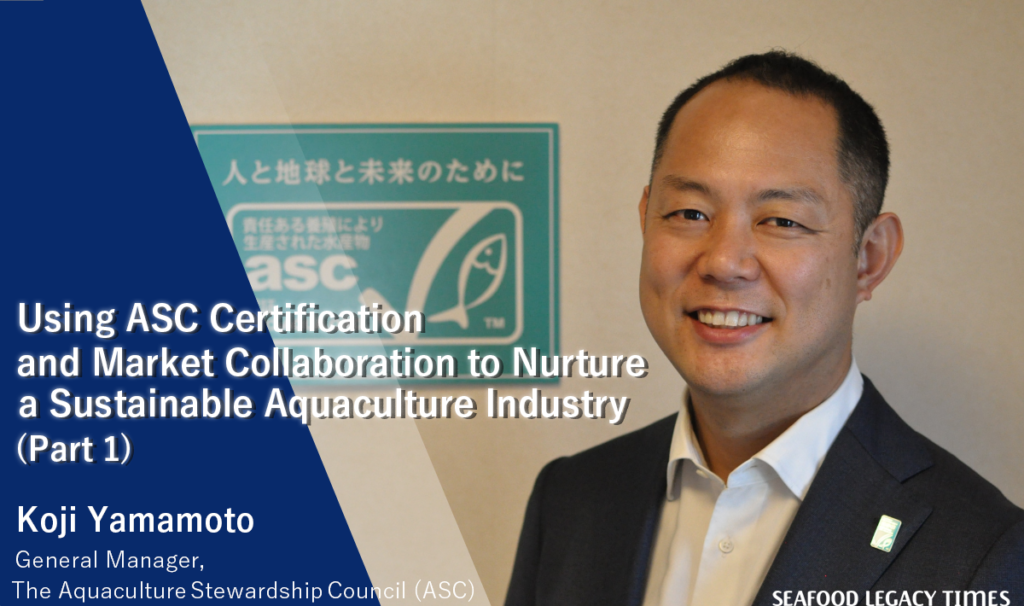
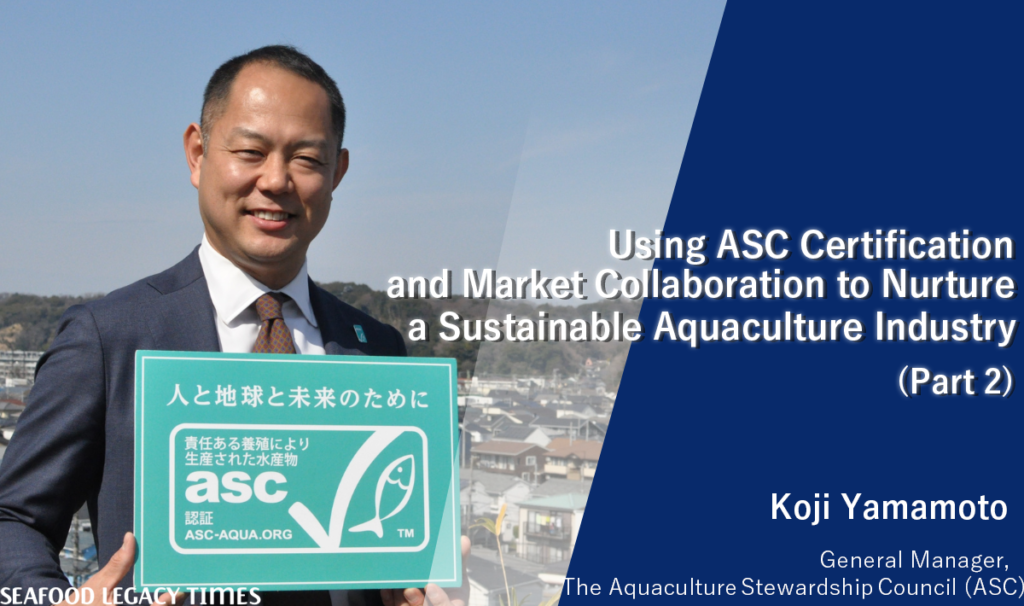
2-1024x606.png)
-1-1024x606.png)
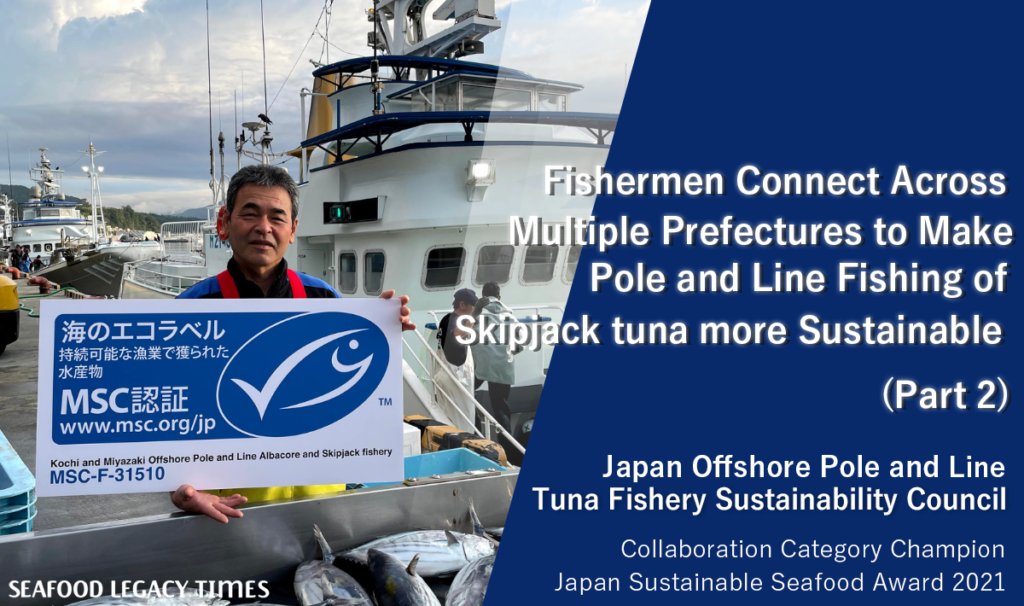
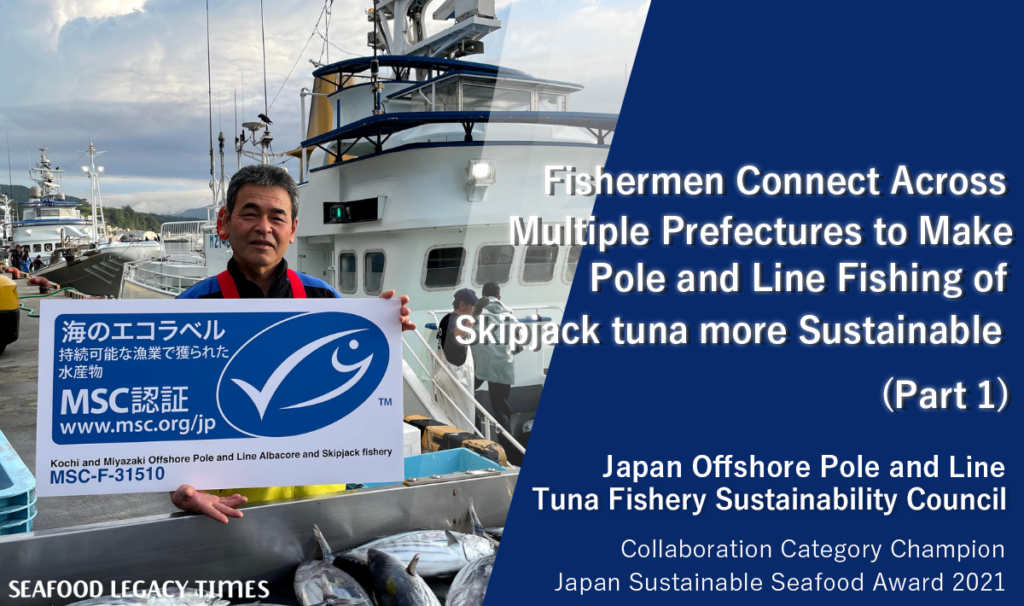
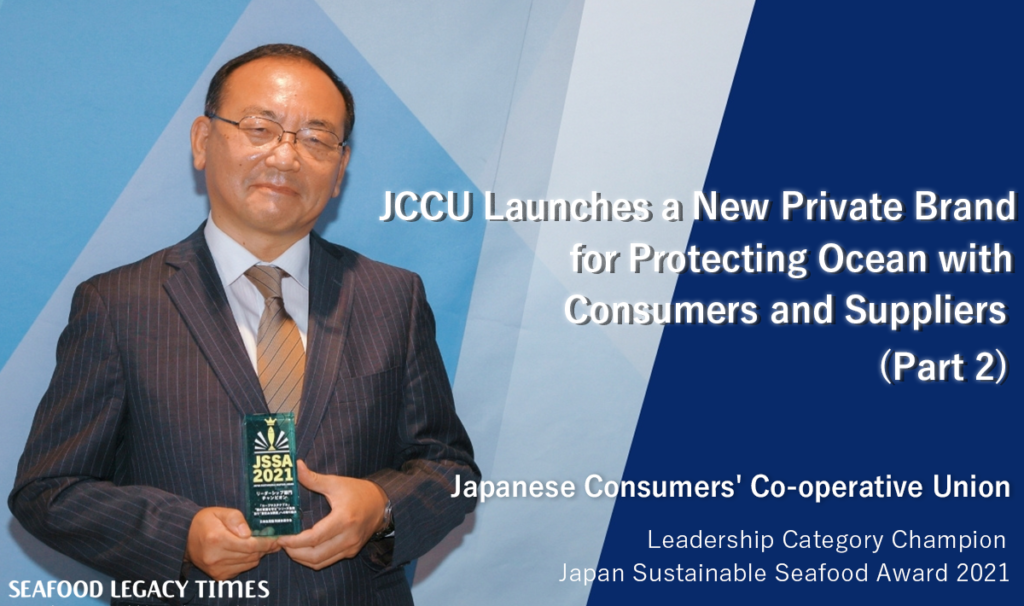
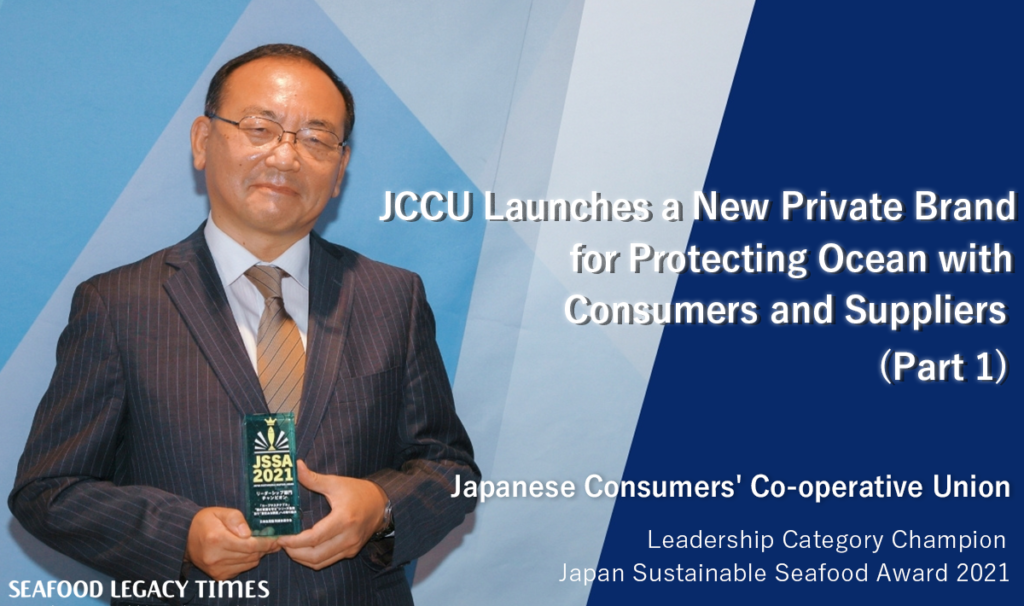
Part2-1024x606.png)
Part1-1024x606.png)
